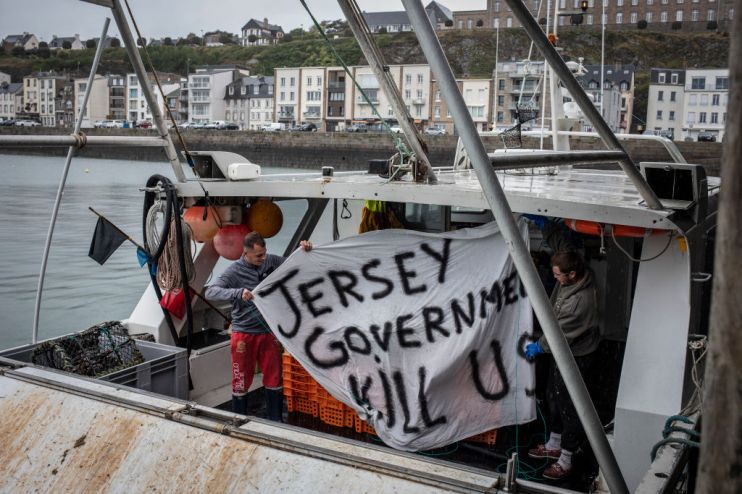The French fishermen blockade in Jersey was a political spectacle – but we’re all sour on the Brexit deal

Brexit provided a bright spotlight for ports and shipping. The latest dramatic escalation of tensions as French fisherman turned up, armed with flares, at the Jersey port of St Helier, has once again thrown fishing onto centre stage.
Jersey is an easy target. They rely on an undersea cable, connected to France, for their electricity. In turn, French fishermen previously enjoyed unencumbered access to Jersey’s fishing waters, access foiled by a Brexit deal which means they must apply for a license. The French maritime minister Annick Girardin threatened to cut the power completely if Jersey did not relinquish red tape and let the trawlers back in. It’s an old-fashioned political skirmish.
Given the ferocity of the standoff, you would be forgiven for thinking the fishing deal Britain eventually secured was worth fighting for. While the UK has a vibrant and active fishing industry, around 80 per cent of UK landings are exported. The overwhelming majority of these go to European markets and buyers.
The new customs and border controls at European ports which receive UK cargo mean there have been drastic changes for our exporters. New border processes impact transport times and, as a result, the quality and value of perishable cargoes.
Fish landed in Scotland, the South West of England or Wales were previously ferried across by lorry to Boulogne and Zeebrugge. Documentary requirements, new procedures and costly delays have created significant teething difficulties. Similar controls will be introduced at UK ports in January 2022.
Indeed at the turn of this year some fishing activities were threatened because of a lack of confidence in the process. There was a partial collapse of certain fish prices in the UK and a number of British fishing vessels wound up landing their catches in European ports to avoid the issues created by Brexit.
So what, you may ask? Well this was and is costly to those ports and coastal communities in the UK and to those sectors who rely on fish landings and associated maritime activities. In other words: jobs and revenue. The French fishermen aren’t the only ones sour about the deal.
Much was made by certain sections of the fishing industry about the positives of Brexit but the UK’s departure has created new headaches for the sector. Standoffs in the channel are not new. Aggression in the waters and the ports is an age-old tradition fishermen have not tired of. But it is bad for business and bad for jobs.
For a place like Jersey, their ports are a lifeline. The drums of war in St Helier should be a warning for leaders to prioritise diplomacy over a political spectacle.